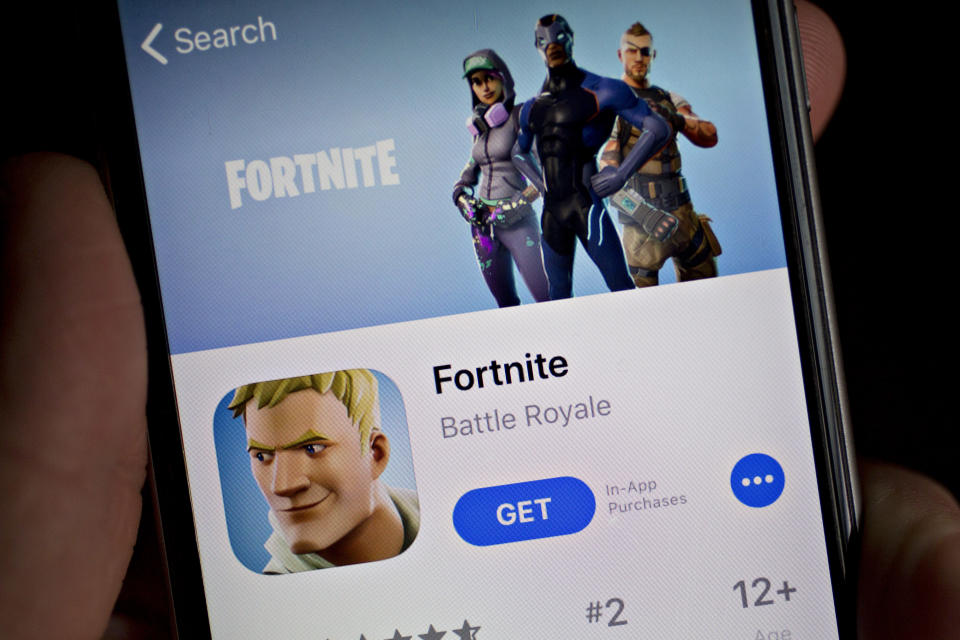Epic Games points to Mac's openness and security in its latest filing in App Store antitrust case

In a new court filing, Epic Games challenges Apple's position that third-party app stores would compromise the iPhone's security. And it points to Apple's macOS as an example of how the process of "sideloading" apps -- installing apps outside of Apple's own App Store, that is -- doesn't have to be the threat Apple describes it to be. Apple's Mac, explains Epic, doesn't have the same constraints as found in the iPhone operating system, iOS, and yet Apple touts the operating system used in Mac computers, macOS, as secure.
The Cary, N.C.-based Fortnite maker made these points in its latest brief, among several others, related to its ongoing legal battle with Apple over its control of the App Store.
Epic Games wants to earn the right to deliver Fortnite to iPhone users outside the App Store, or at the very least, be able to use its own payment processing system so it can stop paying Apple commissions for the ability to deliver its software to iPhone users.
A California judge ruled last September in the Epic Games v. Apple district court case that Apple did not have a monopoly in the relevant market -- digital mobile gaming transactions. But the court decided Apple could not prohibit developers from adding links for alternative payments inside their apps that pointed to other ways to pay outside of Apple’s own App Store-based monetization system. While Apple largely touted the ruling as a victory, both sides appealed the decision as Epic Games wanted another shot at winning the right to distribute apps via its own games store, and Apple didn't want to allow developers to be able to suggest other ways for their users to pay.
On Wednesday, Epic filed its Appeal Reply and Cross-Appeal Response Brief, following Apple's appeal of the district court's ruling.
The game maker states in the new filing that the lower court was led astry on many points by Apple, and reached the wrong conclusions. Many of its suggestions relate to how the district court interpreted the law. It also newly points to the important allies Epic now has on its side -- Microsoft, the Electronic Frontier Foundation, and the attorneys general of 34 states and the District of Columbia, all of who have filed briefs supporting Epic's case with the U.S. Court of Appeals for the Ninth Circuit.
However, one of Epic's larger points has to do with the Mac's security model and how it differs from the iPhone. Epic says that if Apple can allow sideloading on Mac devices and still call those computers secure, then surely it could do the same for iPhone.
"For macOS Apple relies on security measures imposed by the operating system rather than the app store, and 'notarization' program that scans apps and then returns them to the developer for distribution," Epic's new filing states. It says the lower court even agreed that Apple's witness on the subject (Head of Software Engineering, Craig Federighi) was stretching the truth when he had disparaged macOS as having a "malware problem."
Epic then points to examples of Apple's own marketing of its Mac computers' security, where it touts "apps from both the App Store and the internet" can be "installed worry-free."
Apple has argued against shifting to this same model for iPhone as it would require redesigning how its software works, among other things, including what it says would be reduced security for end users.
As app store legislation targeting tech giants has continued to move forward in Congress, Apple has been raising the alarm about being forced to open up the iPhone to third-party app stores, as the bipartisan Open App Markets Act and other international regulations would require. Apple said that mandating sideloading doesn't comply with its pro-consumer privacy protections.
In a paper Apple published to further detail this issue, it stated that permitting sideloading could risk users' "most sensitive and private information."
"Supporting sideloading through direct downloads and third-party app stores would cripple the privacy and security protections that have made iPhone so secure, and expose users to serious security risks," the paper read. Apple also pointed to Google's Android operating system as an example of that risk, noting that, over the past four years, Android devices were found to have 15 to 47 times more malware infections than iPhone.
Timed with the release of the new filing, Epic Games CEO Tim Sweeney was interviewed by the Financial Times where he continued to berate Apple for its alleged anti-competitive behavior. Sweeney said that even if Apple fairly won the hardware market, it shouldn't be allowed to use that position to "gain an unfair advantage over competitors and other markets," like software.
"They should have to compete fairly against the Epic game store, and the Steam Store, and let’s assume the Microsoft Store, and the many other stores that will emerge — as they do with any other market in the world, except for digital app stores," Sweeney said.
Epic's Response and Reply Brief by TechCrunch on Scribd

 Yahoo Finance
Yahoo Finance 